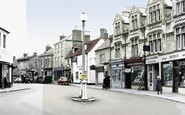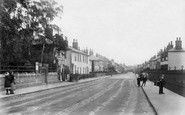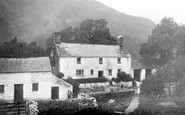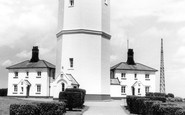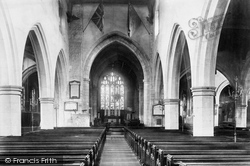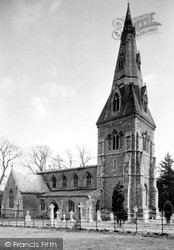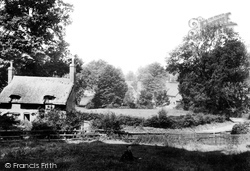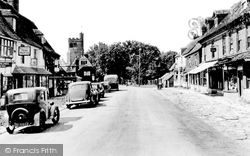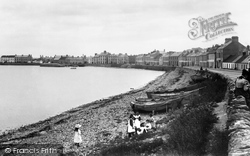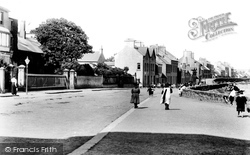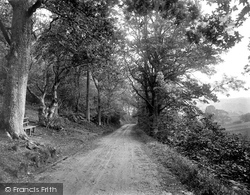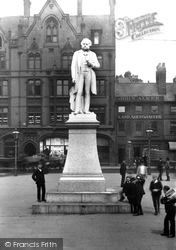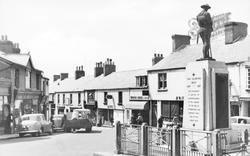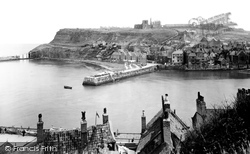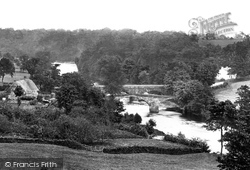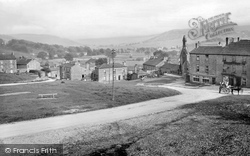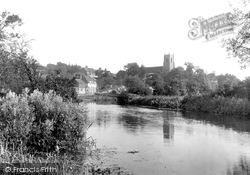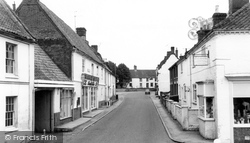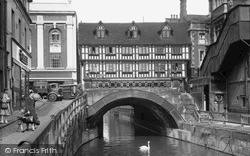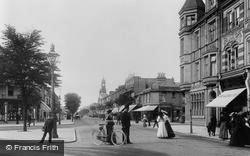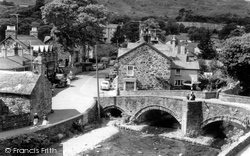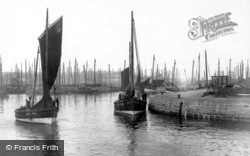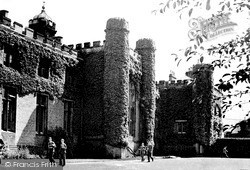Merry Christmas & Happy New Year!
Christmas Deliveries: If you placed an order on or before midday on Friday 19th December for Christmas delivery it was despatched before the Royal Mail or Parcel Force deadline and therefore should be received in time for Christmas. Orders placed after midday on Friday 19th December will be delivered in the New Year.
Please Note: Our offices and factory are now closed until Monday 5th January when we will be pleased to deal with any queries that have arisen during the holiday period.
During the holiday our Gift Cards may still be ordered for any last minute orders and will be sent automatically by email direct to your recipient - see here: Gift Cards
Places
4 places found.
Those places high-lighted have photos. All locations may have maps, books and memories.
Photos
2 photos found. Showing results 661 to 2.
Maps
65 maps found.
Books
Sorry, no books were found that related to your search.
Memories
4,591 memories found. Showing results 331 to 340.
First School
I was six when this photo was taken. We lived in a tiny flat in Curzon Street, basically one room, and I went to school at Fintragh, a tiny private school in two rooms part way down the high street, opposite the Post Office. This traffic ...Read more
A memory of Calne in 1950 by
Welsh Girl From Six Bells
Born in Abergavenny in Dec/ 1951. Brought home to my Nanna's house who we lived with in 1 Lancaster Street where my family lived. Dad worked down the six bells pit at the time, and I have fond memories while I was growing ...Read more
A memory of Six Bells in 1958 by
County Oak And Tushmore Sports And Social Club
Tushmore Lane and either side of the main A23 had properties forming the catchment area for club members, also another general store and petrol station. County Oak boasted a recreation ground with ...Read more
A memory of Crawley in 1953 by
Recollection Of June 1953
I recall receiving a Coronation Commemoration Mug, in my nursery school in June 1953. I was 5 at the time. My father was a resident Doctor in St. Michaels Hospital in Braintree. Does anyone know the name of the school ? ...Read more
A memory of Braintree by
Bombing Of Morland Avenue
Written by my mother when she was 70. She lived in Swaisland Road I think one of the things you would have noticed was the number of barrage balloons all around, high in the sky. The first sound of guns which we heard was ...Read more
A memory of Dartford in 1945
Brooksby Hall Agricultural College, Leicestershire,England
Like Gwilym Evans I was enlisted into HM Forces in 1944, along with my twin brother. We were born in May 1926. Served with RASC as drivers first in Wiltshire, England, driving 3 ton ...Read more
A memory of Nantgwynant in 1949 by
My Lost Youth
As a wee lad of 7 o r8, I had (I think) TB, my illness was called debility. My only memories are, an ambulance at my home in Walsall, my mom/dad waving and the tears, 2 nuns and then a hell of a long scary train ride. Margate was ...Read more
A memory of Broadstairs in 1954 by
Memories Of Leadgate And Iveston 1938 1943
I came to live at Leadgate when I was 12 years old and attended Leadgate Council School which was a large red brick building for infants and juniors, boys and girls. I was at the school for only 2 years, ...Read more
A memory of Leadgate in 1930 by
Wartime Evacuee 1939 1940
In August 1939 I was evacuated frm Salford to Caton. I had my gas mask, a small parcel of food and a label on my clothing. We arrived at the then beautiful station, adorned with flowers. Then we walked to the Village ...Read more
A memory of Caton in 1930 by
During The Second World War
This story is a memory during the Second World War. My father Samuel Fredrick Richardson was the air-raid warden. There was a brick shelter, built on the village green. Most of the village used to use it. One night ...Read more
A memory of Frimley Green in 1940 by
Captions
913 captions found. Showing results 793 to 816.
The Queen came here in her Jubilee year, 1977, to unveil a stone commemorating the crowning of her predecessor Edward the Elder on this site 1100 years ago.
In 1730 Mrs Orton ensured the village's undying fame, for although she sold it at Stilton in Huntingdonshire, it was here that she created Stilton cheese.
It later came into the possession of the Vane family, though it was temporarily lost by them to the Royalists during the English Civil War following a surprise attack.
In the 1800s, the villagers' income came from the straw-plaiting industry, which served the hat-making trade at Luton.
Its claim to fame are the Siamese twins pictured on the village sign (not visible on the photograph); known as Eliza and Mary, they were born joined at the shoulder and hip and lived together like this
A busy port became the Royal Mail route, and then came the beautifully-engineered harbour and a lighthouse. That was nearly 80 years before this photograph was taken, and it was the days of sail.
It later came into the possession of the Vane family, though it was temporarily lost by them to the Royalists during the English Civil War following a surprise attack.
In 1898 the town's landlord was Lord Shaftesbury; the estate came to him from his father marrying the surviving Chichester daughter.
There was a bandstand which was converted into a café; later came a putting green.
Perhaps because of this, the initial programming had a very classy feel - André Previn came with the Musikverein Quartet in 1984 - but though the public liked the prestige this bought to the
He worked tirelessly for the repeal of the Corn Laws, which came about in 1846.
The war memorial lists the names of local men who lost their lives during the two world wars, many of them while serving with the county regiment, the Glosters.
Old deeds of many of the East Cliff houses often included particulars of 'drying grounds', the rights of which came with the building in question.
The name Hodder means 'pleasant stream'. It is a Celtic name, and it describes the river well.
Fortunately for the village, this was also the time of the new tourist industry: Victorians came in search of peace and tranquillity away from the industrial West Riding.
The lords of the manor, who took their name from the village, came here in the time of Henry II; John, son of Ybri de Belaugh, had a large estate.
Different businesses produced hats, dresses, watches and clocks; a team of rat-catchers came from the village, and were well-known across the county.
Marks & Spencer, who came in 1931, occupy the building to the left of the High Bridge Restaurant; Burton's (left) are still there, and have been joined by Dorothy Perkins.
In 1730 Mrs Orton ensured the village's undying fame, for although she sold it at Stilton in Huntingdonshire, it was here that she created Stilton cheese.
Marks & Spencer, who came in 1931, occupy the building to the left of the High Bridge Restaurant; Burton's (left) are still there, and have been joined by Dorothy Perkins.
After an enquiry Essex County Council duly authorised the new Board which came into being as the Great Clacton Local Board on 17 June 1891.
This extremely attractive village lies in the heart of mountainous Snowdonia on the Glaslyn river, and this fine bridge has been a magnet for visitors, who came in increasing numbers following the war.
There are several stories as to how the zulu got its name, but the first of the type does appear to have been built around 1879 at the time of the Zulu War.
In 1777 an Act of Parliament allowed for the founding of Exhibitions and the appointment of assistant masters, and thus in 1778 Dr Thomas James became the first Headmaster.
Places (4)
Photos (2)
Memories (4591)
Books (0)
Maps (65)

